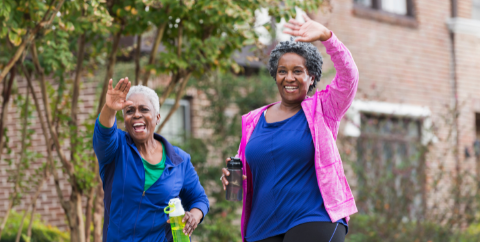Cancer-Related Cognitive Impairment: Understanding "Chemo Brain"
09 September, 2024
Many cancer survivors experience cognitive changes during and after treatment, a phenomenon often referred to as "chemo brain." This condition, more formally known as Cancer-Related Cognitive Impairment (CRCI), can significantly impact a survivor's quality of life and daily functioning.
What is CRCI?
Cancer-Related Cognitive Impairment encompasses a range of cognitive difficulties that cancer patients and survivors may experience. Common symptoms include:
- Memory problems
- Difficulty concentrating
- Trouble multitasking
- Slower processing speed
- Struggles with word-finding
These symptoms can persist for months or even years after treatment has ended, affecting work performance, social relationships, and overall well-being[1].
Causes and Risk Factors
While the exact mechanisms behind CRCI are not fully understood, researchers believe several factors contribute to its development:
- Chemotherapy drugs
- Radiation therapy, especially to the brain
- Hormonal treatments
- Surgery and anesthesia
- Stress and anxiety related to cancer diagnosis and treatment
- Fatigue and sleep disturbances
- Genetic predisposition
It's important to note that CRCI can occur in patients who have not undergone chemotherapy, suggesting that other aspects of cancer and its treatment play a role[2].
Diagnosis and Assessment
Diagnosing CRCI can be challenging, as symptoms may be subtle and vary among individuals. Healthcare providers typically use a combination of:
- Patient self-reporting
- Neuropsychological tests
- Brain imaging techniques
Early recognition and assessment of cognitive changes are crucial for developing appropriate management strategies[3].
Management Strategies
While there is no single cure for CRCI, several approaches can help manage symptoms and improve cognitive function:
Cognitive rehabilitation: Exercises and strategies to improve memory, attention, and problem-solving skills.
Physical exercise: Regular physical activity has been shown to enhance cognitive function and overall well-being.
Stress reduction techniques: Mindfulness meditation, yoga, and relaxation exercises can help manage stress and improve cognitive performance.
Sleep hygiene: Establishing good sleep habits can alleviate fatigue and improve cognitive function.
Medication: In some cases, stimulants or other medications may be prescribed to address specific symptoms[1][3].
Ongoing Research
Scientists continue to investigate the underlying mechanisms of CRCI and develop more effective treatments. Current areas of research include:
- Identifying biomarkers to predict CRCI risk
- Exploring neuroprotective agents to prevent cognitive decline
- Developing targeted interventions based on individual risk factors
- Investigating the long-term effects of CRCI on cancer survivors
Support for Patients and Caregivers
Coping with CRCI can be challenging for both patients and their caregivers. Support groups, counseling, and educational resources can provide valuable assistance. Many cancer centers now offer specialized programs to address cognitive issues in cancer survivors[2].
Understanding and addressing Cancer-Related Cognitive Impairment is crucial for improving the long-term quality of life for cancer survivors. As research progresses, healthcare providers and patients alike can look forward to more effective strategies for managing this common and often overlooked aspect of cancer survivorship.
Citations:
[1] https://www.cdc.gov/cancer-survivors/stories/index.html
[2] https://cancercontrol.cancer.gov/ocs/resources/survivor-caregiver-stories
[3] https://stupidcancer.org/when-a-cancer-survivor-becomes-the-caregiver/
[4] https://thepatientstory.com/caregiver-stories/
[5] https://www.bms.com/patient-and-caregivers/survivorship-today.html
[6] https://cancercontrol.cancer.gov/ocs/resources/survivor-caregiver-stories/kris
[7] https://www.fredhutch.org/en/news/center-news/2023/11/cancer-caregiver-compassion-critical-organization.html
You May Also Like

Join a Virtual Research Study to Support Cancer Survivors' Physical Activity
02.19.2025
Are you a cancer survivor looking to stay active and healthy?

Regular exercise can help survivors feel better, reduce medical needs
11.11.2024
A recent study published in “Oncology Issues” sheds light on how exerci

The Potential Cancer-Preventive Benefits of Coffee: What Science Says
11.07.2024
For many coffee enthusiasts, the daily ritual of a morning brew may offer more than just a caffeine boost—it could contribute to long-term health,